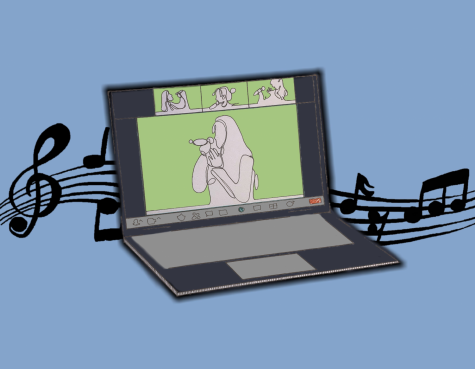A cappella groups welcome new members and new safety adaptations
February 25, 2021
Whitman’s three a cappella groups Schwa, Sirens and The Testostertones (T-Tones) are adapting to new kinds of rehearsals this semester.
Each group at Whitman has found that the very nature of singing a cappella is antithetical to the online meeting format, and has worked to overcome these new challenges while prioritizing safety. Whitman’s Schwa began meeting on a weekly basis. Although T-Tones took a break last semester, they now meet monthly to catch up. The Sirens also took a hiatus last semester to address mental health and group morale.
Lizzy Gazeley, a senior member of Schwa, said, “In a typical semester, you could find us crowded into a single practice room, singing shoulder to shoulder.”
For each of these groups, such intimacy was crucial to the process of learning music. According to senior T-Tone Noah Dunn, choral and a cappella singing, as opposed to other forms of musical expression, are, “kind of the hardest to replicate over Zoom. You have to laser in on everyone else’s sound and modify your own instrument.”

Such modifications include looking at each other’s mouth shapes, listening to each other’s pitches, and physically hearing and feeling others’ voices to adapt one’s own voice to the group.
For the majority of Whitman students that have experienced the accidental Zoom interruption when trying to participate in class, one can imagine that this makes singing incredibly difficult to replicate virtually.
Further challenges arise during the process of learning music. The Sirens, for example, have always prided themselves on their “no sheet music” policy, which promotes inclusivity within the a cappella community. This means that they learn their music primarily by ear.
According to a member of The Sirens, senior Isabel Pereira, this has made the process of teaching music extremely difficult online.
Despite these extensive challenges, all three organizations have kept a positive outlook on the future of this semester. It seems that this newfound hope lies in the talent that the new members bring to virtual auditions. All three groups recently finished their auditions and are preparing for the task of teaching their music to new members.
Sydney Rollins, a junior in the Sirens, mentioned that the virtual audition process itself had its upsides. “I liked that we could re-watch the people, so I wouldn’t forget their pitches or the songs they sang,” Rollins said.
The members also felt a sense of general excitement from the auditionees. “Several of the singers during auditions noted that this was the first time in a long time that they had gotten the opportunity to sing since the beginning of the pandemic,” Gazeley said.
Auditioning in a cappella is crucial, because different songs and traditions are passed down from generation to generation. In other words, if these groups had spent the whole year in hibernation, they would lose what Dunn describes as “institutional memory” that “is invaluable to groups like this.”
There is also hope to be found in potentially being able to showcase their work. On the Whitman website, there is an article entitled “Schwa A Cappella Performance of ‘Distance” by Emily King, which is Schwa’s first attempt at performing during the COVID-19 pandemic.
“These remote performances illustrate how even though we are apart we are still a musical community,” Gazeley said.
The other a cappella groups also expressed interest in performance opportunities. However, their priority this semester is on community building and adapting to the virtual world of music.





